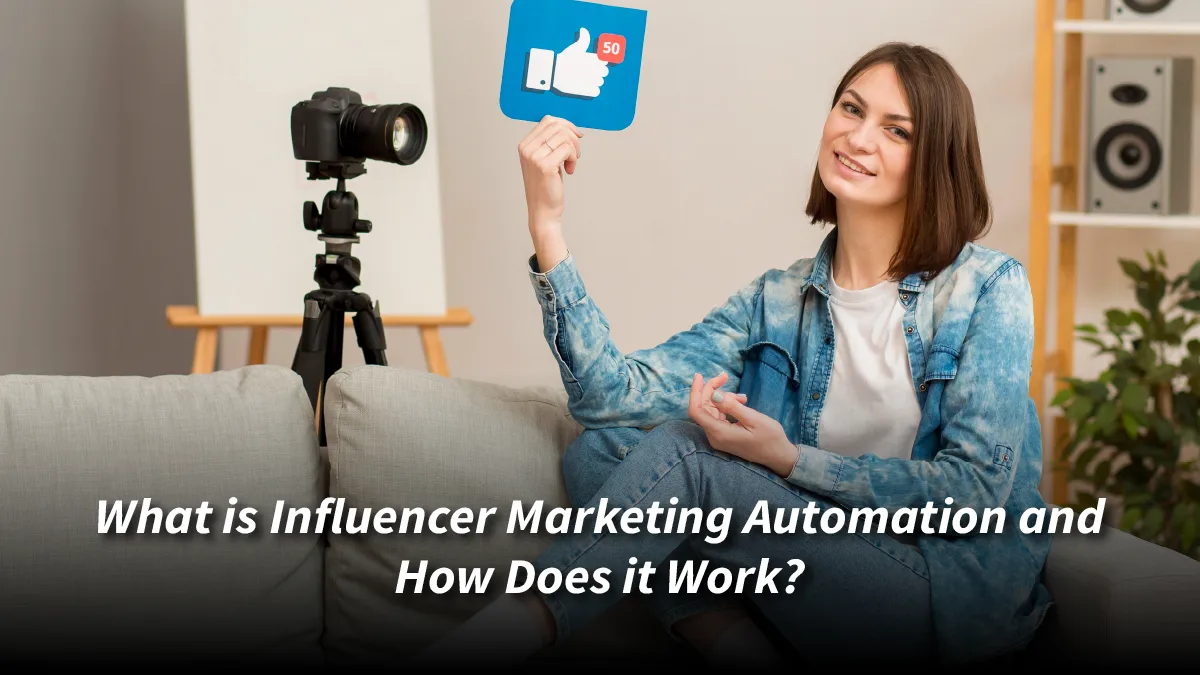Building a brand, establishing connections with producers, and creating creative marketing campaigns are just a few of the many benefits of influencer marketing. If you are trying to scale software while you are buried in spreadsheets, you will not have time for any of it. You’re long overdue to invest in the resources that will restore the fun of influencer marketing if that describes you. This blog will explain how to use influencer marketing automation and some of its advantages.
What is Influencer Marketing Automation and How Does it Work?

Influencer marketing automation is the process of using technology to optimize and expedite different phases of an influencer marketing campaign, such as outreach and discovery, content management, and reporting. Automation tools assist organizations in scaling their campaigns effectively while guaranteeing flawless execution, eliminating the need for human management of influencer participation.
In order to optimize and streamline the different processes involved in influencer marketing initiatives, influencer marketing automation makes use of specialized tools and technologies. The administration of influencer partnerships is improved overall, productivity is increased, and scalability is increased thanks to this automation. In fact, over two-thirds of businesses intend to spend more on influencer marketing. It works like this:
Key Components of Influencer Marketing Automation
Influencer Discovery: Automation tools use artificial intelligence (AI) and data-driven algorithms to find relevant influencers based on predetermined standards including audience demographics, engagement rates, and brand relevance. Marketers can save time and money by using this method to swiftly search through sizable databases for the ideal influencers.
Outreach and Communication: Personalized outreach at scale is made possible by automated platforms. Influencers can receive first messages from brands, and to guarantee regular communication, follow-up communications can be set up automatically. When handling big campaigns, where manual outreach would take a lot of time, this is really helpful.
Contract Management: By automatically emailing contracts and briefings after an influencer is chosen, automation technologies help expedite the onboarding procedure. This guarantees the prompt and effective onboarding of influencers, facilitating a more seamless campaign launch.
Content Scheduling and Approval: Automation enables brands to plan the release of content ahead of time, guaranteeing timely postings on many channels. Automated workflows can also streamline the content review procedure, assisting brands in adhering to standards prior to content going live.
Analytics and Performance Tracking: Real-time tracking of campaign performance measures like ROI, reach, and engagement is facilitated by automated systems. Throughout the campaign lifecycle, marketers are able to make well-informed decisions and adjustments due to this data-driven approach.
Also Read: The Rise of B2B Influencer Marketing on Social Media: 2024 and Beyond
Benefits of Influencer Marketing Automation
The main objective for marketers is to use automation to optimize overall strategy. Optimizing their overall strategy was indicated by 43% of marketers when asked what their main marketing optimization objectives were. Other top responses included enhancing customization (30%), optimizing campaigns (31%), finding potential clients (34%), and boosting data quality (37%).
The following are some of the main advantages of automating influencer marketing:
● Effectiveness and Time Savings
Marketers may save a great deal of time by automating repetitive processes like influencer outreach, follow-ups, contract administration, and even content approval. Automation platforms, for example, eliminate the need for manual interventions by enabling you to schedule influencer posts ahead of time or send bulk outreach messages.
● Data-Driven Decisions
Through advanced analytics, influencer marketing automation platforms offer insightful information that empowers organizations to make informed decisions. Based on audience demographics, engagement analytics, and prior performance, these tools assist in choosing influencers. Additionally, analytics dashboards let you monitor campaign effectiveness in real time, improving content and modifying tactics for increased return on investment.
● Scale and Consistency
It can be difficult to oversee numerous influencers at once while maintaining a consistent brand messaging. Automation streamlines the process by ensuring that campaigns stay in line with brand guidelines across multiple platforms and influencers. This is essential for preserving brand coherence and authenticity, particularly when managing large-scale campaigns.
● Cost-Effectiveness
Brands can cut down on the amount of human work required by automating labor-intensive procedures, freeing up funds that can be used for more strategic initiatives. Automation ensures that resources are used effectively, lowers operating costs, and increases campaign effectiveness overall.
● Real-Time Adjustments
The flexibility to adapt in real time based on performance data is one of automation’s main benefits. Companies may swiftly modify content, influencer messaging, or audience targeting if a campaign isn’t working as planned, guaranteeing optimal return on investment.
By including these automation tools in your influencer marketing strategy, you can grow your efforts without compromising the efficacy and authenticity of your influencer connections.
What Are the Best Ways to Use Influencer Marketing Automation for Campaign Optimization?
Data collection and analysis in real time is one of the primary perks of influencer marketing automation. Advanced analytics solutions allow brands to monitor important performance indicators like ROI, conversions, and engagement rates. With the use of data, marketers can make well-informed decisions and modify their plans to maximize campaign results, guaranteeing that every influencer collaboration delivers the most value possible.
| Benefit | With Automation | Without Automation |
| Data Collection & Analysis | Automated analysis and real-time data collection. | Manual data collection; prone to errors and delays. |
| Campaign Scalability | Easily scale and manage various automated influencer campaigns. | Limited scalability because of manual processes. |
| Efficiency in Influencer Management | Automated processes for payments, outreach, and communication. | Prolonged manual processes; higher chances of inaccuracies.
|
| Performance Optimization | Performance insights delivered instantly for rapid course corrections. | Delayed feedback cycles, hindering prompt optimization. |
| ROI Tracking | Precise, consistent tracking of ROI throught campaigns. | ROI tracking inconsistencies, making it challenging to evaluate impact. |
Brands may increase the precision and efficacy of their influencer marketing strategies and save time by automating these procedures, which will enhance campaign performance overall.
In Closing
Influencer marketing automation is revolutionary for effectively scaling campaigns, but it’s important to strike a balance between automation and authenticity. Even though automation makes tasks like campaign management, influencer discovery, and performance tracking more efficient, real connections are still essential for success.
Through data-driven insights and smooth workflows, brands may attain scalability and efficacy through automation while preserving real connections. Adopting automation technologies can help you future-proof your strategy as the influencer marketing landscape changes, allowing you to remain efficient and competitive without sacrificing the human element that gives influencer marketing its impact.

